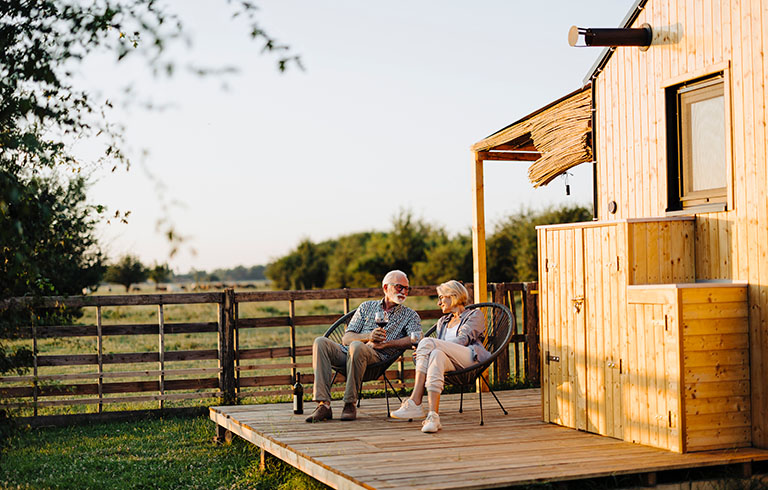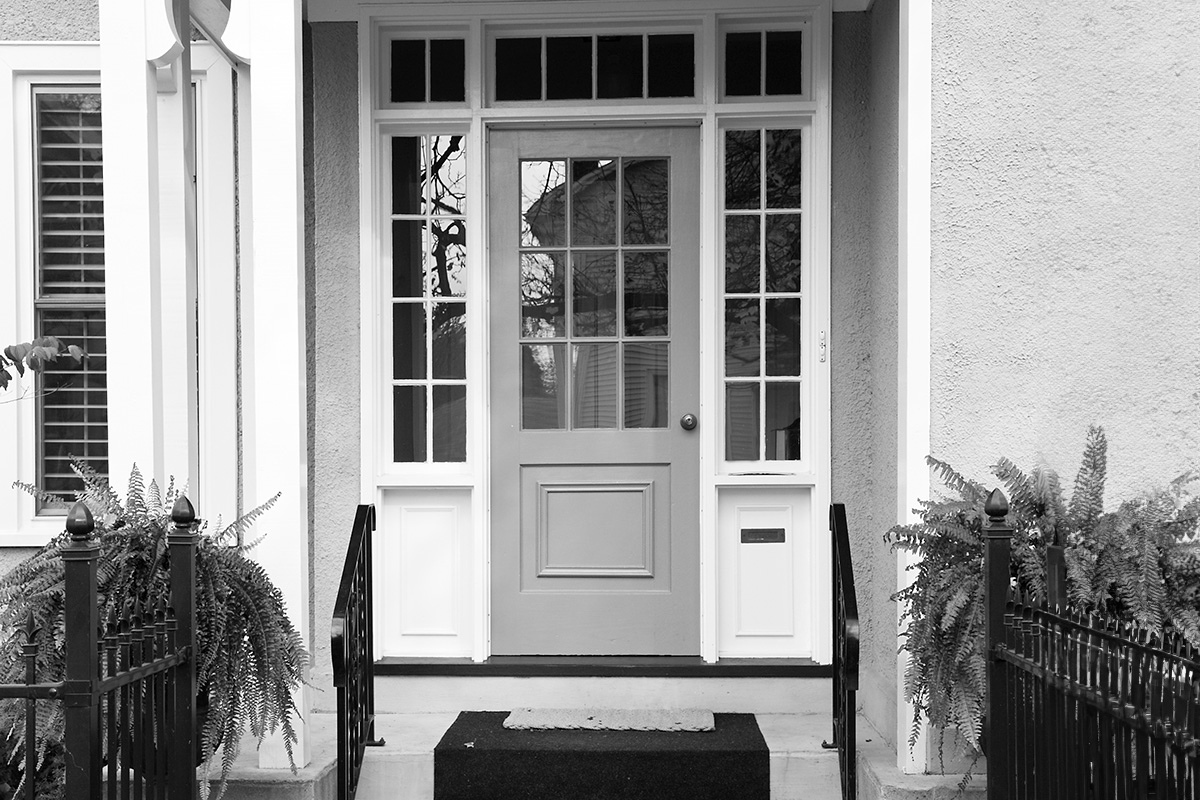Feel financial peace of mind during retirement
Reverse Mortgages
You worked hard for your home equity. Now it can work hard for you in the form of a reverse mortgage loan. This service allows you to live comfortably at home during your golden years.


Limited-time offer
Apply for your home-grown home loan and receive a free appraisal, now until July 31, 2025.¹
With an easy, online application and one-on-one guidance, you’ll be home in no time!
Live retirement your way
Get the funds to meet short-term financial goals and plan for a more secure retirement. A Mountain America reverse mortgage opens the door for you to live more comfortably during retirement and gives you the option to keep your home. Social Security and Medicare benefits are not affected by a reverse mortgage.


Reverse mortgage basics
A reverse mortgage is a loan that is secured by the equity in your home, where repayment is deferred until you move out, sell the property or pass away. You will have no monthly mortgage payment, but you are still required to pay taxes and insurance.
If you move or pass away, the amount of loan funds you have used (plus interest) will be deducted from the value of your home. At the end of your reverse mortgage, your heirs can sell the house and receive the balance or pay the difference and keep the home.
- Quality long-term healthcare
- Home repairs and renovations
- Travel and vacations
- A boat, RV or summer home
- Paying debts and taxes
- Shoring up your estate
Take the first step
To find out if a reverse mortgage is right for you, schedule an appointment below or call us at 1-800-277-7703.
Schedule an appointment
Sit down with one of the experienced mortgage experts in your area.
How to qualify for a reverse mortgage
As is the case with any loan, there are specific requirements for getting and maintaining a reverse mortgage. Typically, you need a significant amount of equity in your home to be eligible for this type of loan.
To qualify for a reverse mortgage, you must meet the following requirements, as noted by the U.S. Department of Housing and Urban Development (HUD):
- Age of the homeowner—Any borrowers on the loan must be 62 years old or older. Speak to your loan officer to discuss options for co-borrowers under age 62.
- Occupancy requirements—The property must be your primary residence. It can be a single-family home or a two- to four-unit home, where you live in at least one unit. FHA-approved condos and manufactured homes are also eligible. Co-ops do not qualify.
- Taxes and insurance—You may not be delinquent on—and must continue to pay—property taxes, homeowners insurance and HOA dues. The home must also be in good repair. Continued maintenance to the home is essential.
- Liens—You can’t have any any additional liens, such as tax liens, mechanic liens or a second mortgage.
- Repayment—You and any heirs agree to repay the loan at the current interest rate in any of the following circumstances: when the house is sold, after the homeowner is no longer a resident or when the homeowner dies.
Your health status does not affect your qualification for a reverse mortgage, as long as you continue to meet the requirements listed above. You must also meet with a HUD-approved counselor to discuss your eligibility for a reverse mortgage, the financial implications of this loan type and any loan alternatives.
Due to the requirements involved, it’s wise to speak with one of our reverse mortgage specialists. They can also help explain:
- Why it might be advantageous to list more than one borrower on the reverse mortgage.
- The roles and responsibilities of homeowners once the home is either no longer occupied by the borrower(s), as well as how family members can keep the home in the event the borrower passes away. There are two solid options for this:
- Family members can buy back the loan and keep the home for themselves.
- They can sell the home, repay the loan and keep the remainder.
- Terms and conditions for retaining the loan, such as keeping up with insurance and taxes.
- How current interest rates impact the amount of funds available to the borrower.

Investments 101
It's never too early to start preparing for your financial future. Learn five ways to grow your nest egg.

Four postretirement tips
Get helpful strategies to navigate the distribution phase of your retirement adventure.
* Must be at least 62 and own and occupy the home. Foreclosure may occur if the consumer lives somewhere other than the home longer than allowed by the loan agreement or does not pay property taxes or insurance premiums. Consumers must make payments for taxes and insurance during the term of the reverse mortgage. Reverse mortgage costs may vary, and less expensive options may be available. A reverse mortgage may affect eligibility for some government programs, including Supplemental Security Income (SSI) and Medicaid. In order to retain the home when the reverse mortgage becomes due, the consumer or the consumer’s heirs or estate must pay the entire loan balance, which may be greater than the value of the consumer’s home. Sale of the home by the borrower may cause payments or access to a line of credit to end, or consumers would be required to repay a reverse mortgage during their life. A reverse mortgage is a loan that must be repaid but repayment is deferred to a later date. Actual APR based on creditworthiness.
- Loans on approved credit. Membership required—based on eligibility. Free appraisal on new purchases and construction loans only. Not available on refinance loans. Cannot be combined with other offers. Limit one per household. Offer valid on applications received between 3/1/25 and 7/31/25 for loans that close no later than 8/31/25. Limited-time offer. Offer can change or be withdrawn at any time.
View dispute and mortgage servicing contact information
Foreclosure prevention